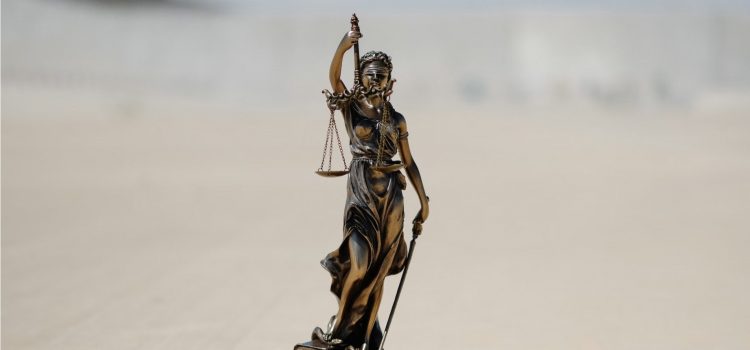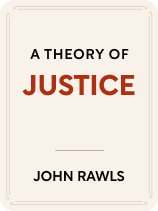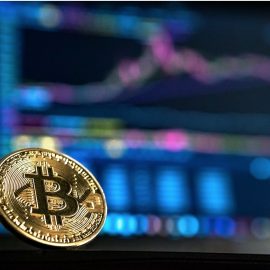

This article is an excerpt from the Shortform book guide to "A Theory of Justice" by John Rawls. Shortform has the world's best summaries and analyses of books you should be reading.
Like this article? Sign up for a free trial here.
What is John Rawls’s difference principle? Under what circumstances should inequality be allowed in society?
The difference principle is the second principle in John Rawls’s book A Theory of Justice. The difference principle states that instances of inequality should only be permitted if they make the least advantaged better off.
Keep reading to learn about Rawls’s difference principle and the kind of circumstances that would call for it.
The Difference Principle: Some Inequality Is Just Under Certain Circumstances
John Rawls’s difference principle argues that inequalities of wealth and political power are just under certain circumstances:
- Unequal distributions of wealth and power must benefit everyone and must provide the greatest possible benefit to those with the least wealth and power.
- These inequalities come from jobs in society that everyone has equal opportunities to fill. They include public positions, like government bureaucrats, as well as private positions—everything from CEOs to dentists.
Rawls adds three rules to clarify his second principle:
Rule #1: Rights Have Priority Over Inequality
According to rule #1, unequal distributions of power and wealth aren’t just if they infringe upon people’s basic rights and freedoms. Rawls says that if there’s ever a time when universal rights and unequal wealth or power conflict, then society must prioritize rights. For example, an excellent leader has provided society with incredible benefits—so much so that many people want to make their leader an absolute dictator for life. While this increased inequality of power might provide society with the benefits of a skilled leader, it’s unjust because it would deprive everyone of their basic right to exercise political power.
(Shortform note: One of the common questions posed when balancing unequal power with basic rights is how to manage a nation’s security in times of crisis. Many classic liberal philosophers (like Rousseau, for example) believed protecting a nation took priority above all else—even basic rights. Rousseau suggests a system similar to that of the Roman Republic, where a political leader can temporarily become a dictator with absolute power during times of war or intense instability. Critics of such a measure argue that its potential for abuse makes it far too dangerous.)
Rule #2: Account for Talent and Class
Rule #2 states that to ensure equal opportunity, the state must account for differences in natural talent and social class. Rawls argues that society shouldn’t limit opportunities necessary for obtaining wealth and power (education, jobs, and so on) to those who already have wealth or to those who are naturally talented. The class a person is born into and their natural talents are determined by chance, and therefore shouldn’t decide moral questions of who gets what in society.
To account for differences in class, Rawls says the state must make education accessible to everyone—both in a technical or academic sense (medical school, for example) as well as in a cultural and experiential sense (an opportunity to network with practicing doctors, for example). To account for differences in natural talent, Rawls believes the difference principle must also apply to skilled versus unskilled labor—skilled laborers shouldn’t earn more than unskilled laborers, unless that would provide a greater benefit to those in the latter category.
(Shortform note: Instead of trying to mitigate the effects of natural talents, many philosophers believe that society should organize itself and create social classes around these differences. Ancient Greek philosophers Plato and Aristotle, for example, believed the state should assign people to roles and classes in society based on whatever they’re particularly skilled at. In such a society, they said political leadership should go to the most morally virtuous citizens. Both Plato and Aristotle strongly believed moral virtue comes from extensive philosophical education—and therefore believed natural talent (in philosophy) can bestow the moral right to hold power.)
Rule #3: Some Unequal Opportunity Is Just
Rule #3 states that unequal opportunity is just as long as it benefits those with fewer opportunities more than it burdens everyone else. Society can provide additional opportunities to the less fortunate who otherwise struggle to gain wealth and power. This is just so long as the benefit to the unfortunate outweighs the burden on the fortunate. For example, New Zealand’s parliament reserves specific seats for Māori citizens—a historically oppressed group indigenous to the island. Rawls might argue that this unequal opportunity is just since it benefits an underrepresented group (the Māori) more than it harms an overrepresented group (non-indigenous New Zealanders).
(Shortform note: The practice of administering additional benefits based on race (through affirmative action in the US, for example) often provokes debate about the role of a liberal government. Some argue for an extension of Rawls’s veil of ignorance, claiming government should create laws without considering specific components of citizens’ backgrounds (like race). They claim that race-conscious legislation like affirmative action goes against the liberal ideal of all laws applying to everyone equally. Proponents (like Rawls, seemingly) argue that it’s just for the government to help the less fortunate—and if historical circumstances mean certain races have fewer primary goods, then the government can acknowledge race to address that.)

———End of Preview———
Like what you just read? Read the rest of the world's best book summary and analysis of John Rawls's "A Theory of Justice" at Shortform.
Here's what you'll find in our full A Theory of Justice summary:
- John Rawls's 1971 theory of justice as fairness
- A breakdown of Rawls's Original Position theory and framework
- The three duties every citizen has in a just society






